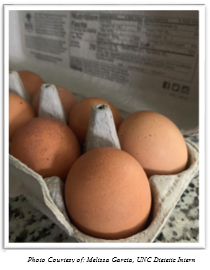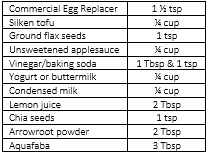 Eggs Across the Lifespan
Eggs Across the Lifespan
Eggs are cost-effective and a perfect source of high-quality protein and of other nutrients making them ideal for all ages, children and adults.
Choline, a nutrient found in egg yolks, plays an important role in growth. It is especially important during pregnancy to support normal fetal growth and brain development. The American Medical Association (AMA) House of Delegates recommended the addition of choline to prenatal vitamins because of its significant role in brain development.
Expecting mothers out there? The perfect snack to reach for is, you guessed it, a hard-boiled egg. Hard-boiled eggs are the second highest source of choline; the first is beef liver.
To Eat the Yolk or Not?
In 2019 a review suggested most of the nutrients of an egg is in the yolk. Eating the entire egg, yolk and whites, provides the right balance of protein, fat, and calories. If you are diabetic and/or have a heart condition, limit your egg consumption to no more than three yolks per week.
Eggs, when added to an overall healthy eating lifestyle, will not negatively affect your health. Recent recommendations from the American Heart Association, American College of Cardiology and American Diabetes Association do NOT limit egg intake. If you’re interested in learning more, click on this link.
Eggs will raise HDL (the “good”) cholesterol. One study found that two boiled eggs a day raised HDL by 10%. Even though egg yolks are high in cholesterol, they won’t alone affect your total blood cholesterol levels. There is not an exact number of eggs that is recommended to eat daily. However, it is known adding eggs to a healthy diet will provide important vitamins, minerals, and nutrients.
DID YOU KNOW?
Brown eggs are not more nutritious than white eggs. The color and size of an egg are determined by the breed of the hen, which can produce white, cream, brown, blue, green or speckled eggs! The color of the yolk is also not reflective of nutritional value but the type of poultry feed.
Tips for Using Your WIC Eggs
HOW TO: Make hard-boiled eggs like an expert:
- PLACE eggs in large pot so eggs are in single layer
- ADD cold water to eggs; water should be about 1 inch above eggs
- HEAT on high to bring to boil
- Once boiling, REMOVE pot from stove
- COVER pot with lid and set timer for 12 minutes
- Take eggs out one-by-one into a bowl of iced water.
- If not eating eggs until later, leave eggs unpeeled and refrigerate
Enjoy!
BONUS: Does your recipe have eggs in it but you ran out?
Try one of these to replace ONE egg*:
*Visit “Egg Substitutes in Baking Recipes” for exact measurements as some replacements require water to be added
Written by: Melissa Garcia, Dietetic Intern- UNC
References:
https://www.incredibleegg.org/cooking-school/egg-cookery/hard-boiled-eggs/
https://www.hsph.harvard.edu/nutritionsource/food-features/eggs/
